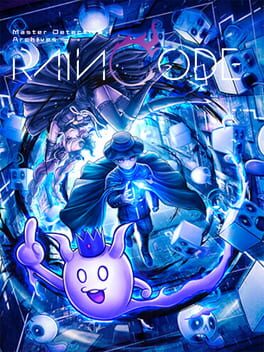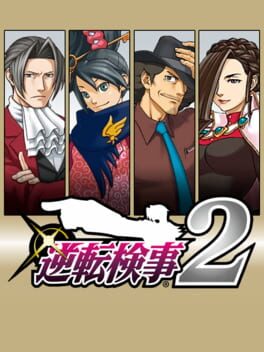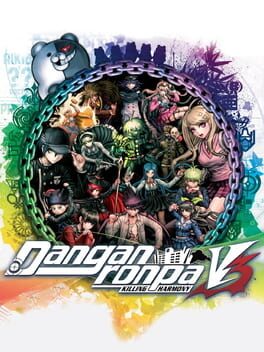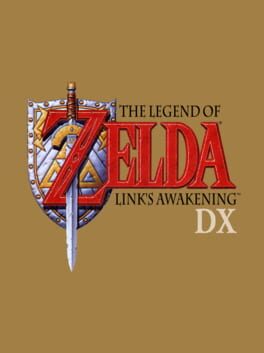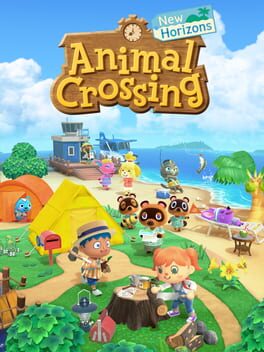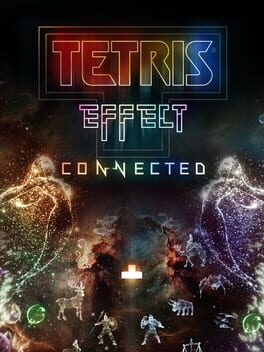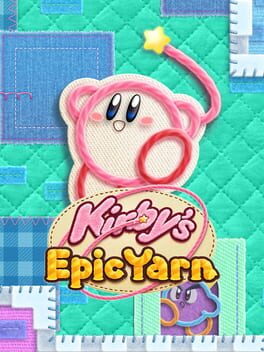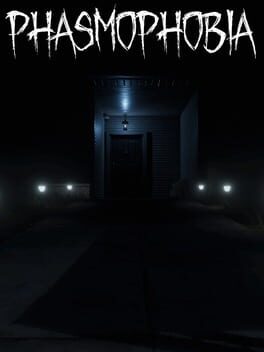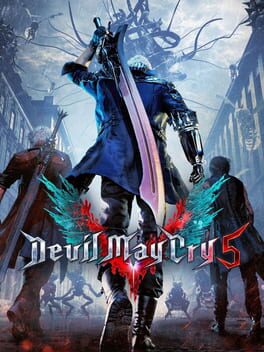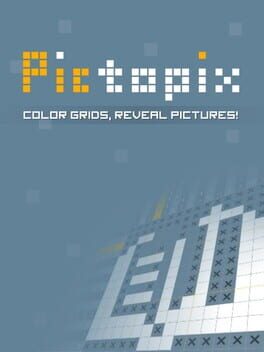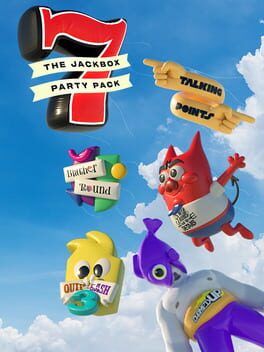nikua_
"How could this get any worse?" I found myself saying this aloud time and time again throughout my playthrough of this game. And to my amazement, Rain Code always managed to outdo itself. It's incredible how the game is capable of pulling this off, I honestly must applaud.
Everything about this game is made to undermine something else, and it is one of the most brilliant ways of writing a story. Mysteries that seem difficult to solve? Don't worry, the core mechanic of the game, the Mystery Labyrinth, will spoon-feed the answers to you. Solving a mystery means killing the culprit, what a cool idea that could be used for some heavy moral decisions later! Not to worry though, most of the culprits are either petty criminals or already dead. Partner characters enter the Mystery Labyrinth with the protagonist, meaning a sizeable chunk of their screentime, and therefore development, happens there. Too bad they lose their memories of everything that happened within when exiting said Mystery Labyrinth! I could go on.
How could this get any worse? These mechanics being at odds with each other is bad enough, but how about some of the worst gameplay in a visual novel yet? Not only are the controls themselves incredibly sluggish, but there are horrendous copies of minigames that were in Danganronpa that serve little to no purpose other than to rehash things people seemed to like about those games. In-between these minigames are sections of nothing but mindlessly walking forward in a straight line until getting to the next one. There are boring and forced side-quests as well as points you earn that go towards a skill tree, both of which serve zero purpose other than to make the game longer and have the appearance of there being more to do.
How could this get any worse? All of Rain Code's problems culminate in one of the most absurd and atrocious final chapters of any story I have ever experienced. Every issue is dialed to the max, and Rain Code isn't afraid to jump the shark and go completely off the deep end. But in a strange turn of events, it was the most enjoyable part of the game. I didn't enjoy it for the reasons that the creator, Kazutaka Kodaka, wanted me to, however. This was an entertaining train wreck that somehow kept getting worse and worse, and I grabbed my popcorn and watched it go up in flames. I am astonished at just how bad it got, and because of that, I enjoyed laughing at everything this game tried to do.
With enough noise, anything can become a symphony. Rain Code conducts this orchestra with such fine attention to detail, making sure nothing is consistent and nothing is harmonious. It walks a thin line between the amazing bad, and the just bad. And what an orchestra it is. I found myself appalled at every twist and turn this game took, and I would once again repeat: "How could this get any worse?"
And yet, it does. After suffering through this piece of shit for hours on end, I reached an epiphany. Among the chaos, I became enlightened: "This is one of the worst games ever, which is why it's one of the best games ever." No game, nay, piece of media will ever achieve what Rain Code has done. While being one of the most inconsistent and infuriating things ever, with awful gameplay, minimal thematic tones, and ideas that constantly undermine themselves, Rain Code is able to use its absurdity to rise above the standards of what makes something "good" or "bad" and become something uniquely its own. The best part? It's not meant to be absurd. It's supposed to be serious. This game fucking sucks in every sense of the word, and at the same time, it is one of the most entertaining games ever. I laugh at this game, not with it. And it feels goddamn amazing.
So, Kodaka, I ask you: How could you get any worse?
Everything about this game is made to undermine something else, and it is one of the most brilliant ways of writing a story. Mysteries that seem difficult to solve? Don't worry, the core mechanic of the game, the Mystery Labyrinth, will spoon-feed the answers to you. Solving a mystery means killing the culprit, what a cool idea that could be used for some heavy moral decisions later! Not to worry though, most of the culprits are either petty criminals or already dead. Partner characters enter the Mystery Labyrinth with the protagonist, meaning a sizeable chunk of their screentime, and therefore development, happens there. Too bad they lose their memories of everything that happened within when exiting said Mystery Labyrinth! I could go on.
How could this get any worse? These mechanics being at odds with each other is bad enough, but how about some of the worst gameplay in a visual novel yet? Not only are the controls themselves incredibly sluggish, but there are horrendous copies of minigames that were in Danganronpa that serve little to no purpose other than to rehash things people seemed to like about those games. In-between these minigames are sections of nothing but mindlessly walking forward in a straight line until getting to the next one. There are boring and forced side-quests as well as points you earn that go towards a skill tree, both of which serve zero purpose other than to make the game longer and have the appearance of there being more to do.
How could this get any worse? All of Rain Code's problems culminate in one of the most absurd and atrocious final chapters of any story I have ever experienced. Every issue is dialed to the max, and Rain Code isn't afraid to jump the shark and go completely off the deep end. But in a strange turn of events, it was the most enjoyable part of the game. I didn't enjoy it for the reasons that the creator, Kazutaka Kodaka, wanted me to, however. This was an entertaining train wreck that somehow kept getting worse and worse, and I grabbed my popcorn and watched it go up in flames. I am astonished at just how bad it got, and because of that, I enjoyed laughing at everything this game tried to do.
With enough noise, anything can become a symphony. Rain Code conducts this orchestra with such fine attention to detail, making sure nothing is consistent and nothing is harmonious. It walks a thin line between the amazing bad, and the just bad. And what an orchestra it is. I found myself appalled at every twist and turn this game took, and I would once again repeat: "How could this get any worse?"
And yet, it does. After suffering through this piece of shit for hours on end, I reached an epiphany. Among the chaos, I became enlightened: "This is one of the worst games ever, which is why it's one of the best games ever." No game, nay, piece of media will ever achieve what Rain Code has done. While being one of the most inconsistent and infuriating things ever, with awful gameplay, minimal thematic tones, and ideas that constantly undermine themselves, Rain Code is able to use its absurdity to rise above the standards of what makes something "good" or "bad" and become something uniquely its own. The best part? It's not meant to be absurd. It's supposed to be serious. This game fucking sucks in every sense of the word, and at the same time, it is one of the most entertaining games ever. I laugh at this game, not with it. And it feels goddamn amazing.
So, Kodaka, I ask you: How could you get any worse?
i went in with fairly high expectations due to how much everyone loves this game but honestly i was pretty disappointed. the pacing was awful and some of the characters were just insufferable. its overarching story was just fine but other than that i didn't love this. music and presentation were great, but didn't do much for me in the story department, which is what i value about ace attorney.
What does it mean to be part of a series? Should a piece of media be viewed only on its own merits, or should it be compared to what came before? This debate has plagued many discussions in the past, but there is no correct answer. Both sides of this argument fail to see the nuance that comes with a series and how the status quo can progress while still paying respects to the legacy of a work of art. There is a dichotomy there that I want to touch on because I feel that Breath of the Wild does not uphold the legacy of the Legend of Zelda series very well and is too much of a departure from what I know, love, and expect of a game that comes with that series label.
The Legend of Zelda: Tears of the Kingdom introduces some amazing new ideas and concepts to the series while also connecting itself to that larger scope and relating its ideas to ones from games in the past. It honors the Zelda series title while still being its own entity and making strides to be truly unique.
Ultimately, it's naive to look at a game in a vacuum because that's just not possible. You can't just ignore what came prior. Expectations and familiarity play roles in everything, and yes, things can't just remain stagnant, however, that legacy can still be upheld and respected while still differentiating enough from that norm. Breath of the Wild tries to detach itself in almost every way from the series to a point where it's practically unrecognizable. That hurts, as someone who's grown up with this franchise. Yes, there is a benefit to looking at just what a game does well on its own. There is a nuance to this argument in that neither side is completely the right answer. Breath of the Wild isn't trying to be a typical Zelda game. And for that, it does extremely well. ...But it's still a Zelda game. It's the legend of ZELDA: Breath of the Wild. It's still a part of this series and it can't shake that name away. I felt let down by how the series as a whole was treated in BOTW and it left an incredibly bitter taste in my mouth.
Tears of the Kingdom strays even further from the typical Zelda identity while, at the same time, somehow making itself more connected to the series than BOTW ever was. TOTK is a breathtaking, inspiring game that takes the foundation of BOTW and builds upon it by allowing you to have the ability to do literally anything in the world with any object. It explores the new race that BOTW introduced but never truly went in-depth about, and I love that. The Zonai are one of my favorite new races in the series, I’m glad they got the love they deserved. TOTK is a goofy and charming game that has me discovering something new and constantly laughing because of some insane finding or contraption I was able to create. The new areas and dungeon aesthetics are some of the most unique and intriguing in the entire franchise, and serve as something that makes this game really stand out amongst the crowd.
It's also moodier, with a tense conflict between past and present that is a lot more dire and unnerving at times, aided by some of the terrifying enemies, areas, and bosses that really make the whole experience a lot more unsettling and serious. The dark and overbearing depths contribute to that feeling, as well as the more involved and emotional story. The game walks a thin line between serious and silly and does it with such excellence that I can't help but adore it for that.
Finally, Tears of the Kingdom is also just more Zelda-y. There are more references and ties to the main series, such as gibdos, like-likes, bomb flowers, poes, the magic armor, and so, so much more. It reimagines and redefines the age-old tale of Ganondorf, the once-in-100-years Gerudo king, approaching and dethroning the Hyrule royalty. It has more enemies, items, and assorted references to the overarching series that made me light up every time they were shown. There's a more involved story that actually shows these characters fighting and struggling with the idea that they very well might fail. It just so perfectly ties everything together to make it ultimately feel like a real Zelda game.
As I said, it upholds the legacy of the Zelda franchise while still making itself unique and modern enough to not feel like it's being held in place. If Breath of the Wild took its identity a few steps too far, I can't even say TOTK took it a step back because it somehow went back and forward at the same time. It blends together what I want from a mainline game and a fresh new take on the series. But it somehow never feels like two separate games— everything is bonded together in a way that makes it one complete experience that never feels confused about what it wants to be.
It’s not without its flaws, though. The dungeons are still not quite what I want them to be. There aren’t enough of them, and they are far too short and simple for me to love them the way I love traditional dungeons. It’s certainly a step in the right direction, visually and storywise, but they need to be more fleshed out and more linear to feel really like Zelda dungeons. Another thing that frustrated me was the sage abilities. I don’t think they were used quite well enough in the dungeons they were introduced in, and the character AI was often not where I wanted it to be during intense moments of stress. They’re fine for what they are, but they rarely felt necessary. Shrines are fine, if still a bit too simple and easily broken with the game’s mechanics.
Speaking of the mechanics, they are a whole lot of fun in this game. They invite so much creativity and thought without sacrificing anything. Ultrahand was easily the standout for me, although the others made traversal and combat a lot more fun as well. I do still wish there was a progression of items as the game went on rather than getting everything at the start, I do miss defeating a miniboss in a dungeon and obtaining some special item that I’d be using all over the world.
As a whole though, Tears of the Kingdom kept me engaged in its world and story to the very end. There was always something new to find, whether it be a secret entrance to the depths, a new shrine, a Zonai item that I hadn’t seen yet, or countless other types of discoveries I made. Its story was really something special. It has easily the best iteration of Ganondorf so far in the series, and a tale that spanned thousands of years to all converge together at the end. I genuinely sobbed so much when this game concluded. Something about the music, characters, and direction just reminded me of what I adore about the Zelda series.
It all comes back to legacy. To answer the question posed at the beginning of this review, being part of a series means honoring what came before, and leaving a footprint that will become part of that history. There’s a legacy that Tears of the Kingdom embraces and honors, bringing in staples from the rest of the series that connect with fans who may not have loved BOTW’s departure from form. Tears of the Kingdom also leaves a legacy of its own, and will certainly shape the future of the franchise. Tears of the Kingdom is a game I can proudly say I love.
"Link. Remember this name."
The Legend of Zelda: Tears of the Kingdom introduces some amazing new ideas and concepts to the series while also connecting itself to that larger scope and relating its ideas to ones from games in the past. It honors the Zelda series title while still being its own entity and making strides to be truly unique.
Ultimately, it's naive to look at a game in a vacuum because that's just not possible. You can't just ignore what came prior. Expectations and familiarity play roles in everything, and yes, things can't just remain stagnant, however, that legacy can still be upheld and respected while still differentiating enough from that norm. Breath of the Wild tries to detach itself in almost every way from the series to a point where it's practically unrecognizable. That hurts, as someone who's grown up with this franchise. Yes, there is a benefit to looking at just what a game does well on its own. There is a nuance to this argument in that neither side is completely the right answer. Breath of the Wild isn't trying to be a typical Zelda game. And for that, it does extremely well. ...But it's still a Zelda game. It's the legend of ZELDA: Breath of the Wild. It's still a part of this series and it can't shake that name away. I felt let down by how the series as a whole was treated in BOTW and it left an incredibly bitter taste in my mouth.
Tears of the Kingdom strays even further from the typical Zelda identity while, at the same time, somehow making itself more connected to the series than BOTW ever was. TOTK is a breathtaking, inspiring game that takes the foundation of BOTW and builds upon it by allowing you to have the ability to do literally anything in the world with any object. It explores the new race that BOTW introduced but never truly went in-depth about, and I love that. The Zonai are one of my favorite new races in the series, I’m glad they got the love they deserved. TOTK is a goofy and charming game that has me discovering something new and constantly laughing because of some insane finding or contraption I was able to create. The new areas and dungeon aesthetics are some of the most unique and intriguing in the entire franchise, and serve as something that makes this game really stand out amongst the crowd.
It's also moodier, with a tense conflict between past and present that is a lot more dire and unnerving at times, aided by some of the terrifying enemies, areas, and bosses that really make the whole experience a lot more unsettling and serious. The dark and overbearing depths contribute to that feeling, as well as the more involved and emotional story. The game walks a thin line between serious and silly and does it with such excellence that I can't help but adore it for that.
Finally, Tears of the Kingdom is also just more Zelda-y. There are more references and ties to the main series, such as gibdos, like-likes, bomb flowers, poes, the magic armor, and so, so much more. It reimagines and redefines the age-old tale of Ganondorf, the once-in-100-years Gerudo king, approaching and dethroning the Hyrule royalty. It has more enemies, items, and assorted references to the overarching series that made me light up every time they were shown. There's a more involved story that actually shows these characters fighting and struggling with the idea that they very well might fail. It just so perfectly ties everything together to make it ultimately feel like a real Zelda game.
As I said, it upholds the legacy of the Zelda franchise while still making itself unique and modern enough to not feel like it's being held in place. If Breath of the Wild took its identity a few steps too far, I can't even say TOTK took it a step back because it somehow went back and forward at the same time. It blends together what I want from a mainline game and a fresh new take on the series. But it somehow never feels like two separate games— everything is bonded together in a way that makes it one complete experience that never feels confused about what it wants to be.
It’s not without its flaws, though. The dungeons are still not quite what I want them to be. There aren’t enough of them, and they are far too short and simple for me to love them the way I love traditional dungeons. It’s certainly a step in the right direction, visually and storywise, but they need to be more fleshed out and more linear to feel really like Zelda dungeons. Another thing that frustrated me was the sage abilities. I don’t think they were used quite well enough in the dungeons they were introduced in, and the character AI was often not where I wanted it to be during intense moments of stress. They’re fine for what they are, but they rarely felt necessary. Shrines are fine, if still a bit too simple and easily broken with the game’s mechanics.
Speaking of the mechanics, they are a whole lot of fun in this game. They invite so much creativity and thought without sacrificing anything. Ultrahand was easily the standout for me, although the others made traversal and combat a lot more fun as well. I do still wish there was a progression of items as the game went on rather than getting everything at the start, I do miss defeating a miniboss in a dungeon and obtaining some special item that I’d be using all over the world.
As a whole though, Tears of the Kingdom kept me engaged in its world and story to the very end. There was always something new to find, whether it be a secret entrance to the depths, a new shrine, a Zonai item that I hadn’t seen yet, or countless other types of discoveries I made. Its story was really something special. It has easily the best iteration of Ganondorf so far in the series, and a tale that spanned thousands of years to all converge together at the end. I genuinely sobbed so much when this game concluded. Something about the music, characters, and direction just reminded me of what I adore about the Zelda series.
It all comes back to legacy. To answer the question posed at the beginning of this review, being part of a series means honoring what came before, and leaving a footprint that will become part of that history. There’s a legacy that Tears of the Kingdom embraces and honors, bringing in staples from the rest of the series that connect with fans who may not have loved BOTW’s departure from form. Tears of the Kingdom also leaves a legacy of its own, and will certainly shape the future of the franchise. Tears of the Kingdom is a game I can proudly say I love.
"Link. Remember this name."
Power.
Freedom is the very core of Breath of the Wild. Go anywhere, do anything. However, this also becomes the game’s greatest downfall. Having the ability to complete this game in any way, in any order, causes a multitude of problems with the progression, story, puzzles, and other central game mechanics. The inability for the developers to regulate and curate a definitive player experience leads to a jumbled, shallow, mess of a game that, while entertaining, lacks the depth of previous games in the Zelda series. The idea of a full world to explore sounds fantastic, and for many, it is. However, freedom is not definitively better than linearity. A massive open world produces many extended periods of time with simply nothing happening. However, exploration and discovery are still key parts of this game, and they’re great… right? Well, it’s not that simple. Exploring the world of Hyrule does lead to a lot of discovery— of the same thing. A shrine. Or a Korok seed. See, a major problem with the exploration in this game is that, no matter what, there are almost no surprises to what one actually discovers. Oh, a hidden cave inside of a mountain? It’s a shrine. A massive skeleton of an ancient beast? It’s a shrine. A forest cursed by some overbearing darkness? It’s a shrine. No matter what, any exploration and “discovery” leads to the same thing. The joy quickly dissipated from finding anything new as I realized it would always just be another shrine. Knowing exactly what will happen— that’s not really a discovery, is it? There’s another problem. The progression. In typical Zelda games, the player becomes more powerful throughout the game as they discover more key items that expand their moveset and abilities. In Breath of the Wild, everything is given to the player at the start of the game. The only progression in this game is obtaining more hearts and stamina, along with more powerful weapons. This creates an inherent problem with the progression— there isn’t really much at all. Nothing changes, and the game isn’t given a chance to introduce new mechanics and ideas. Personally, I feel this makes the flow of the game much less interesting and fun. Abilities aren’t ever-changing and dynamic, they are introduced at the start and become static. In fact, that’s how a lot of this game goes. The beginning is a condensed explosion of new discoveries, mechanics, and unfamiliar situations. As time goes on, however, the game becomes predictable, shallow, and boring. Some of it, unnecessary, even. Combat in this game is fun. However, it is superfluous. Other than miniboss shrines and the four painfully underwhelming dungeon bosses, fighting is almost never required. That would be fine, if fighting was at least worth doing, but it’s not. Engaging in combat results in the damaging of weapons and using of resources, all for what? The chance to obtain a single mediocre weapon from a chest? It’s just not worth it. In previous games, fighting was necessary, whether an enemy was blocking your path, necessary to kill to unlock a room, or a unique boss for a bombastic dungeon finale. In Breath of the Wild, it takes no effort or resources to just walk around encounters. Or, if you do decide to fight, just pause and heal as much as you want. There is no reason to fight, and it is, for lack of a better word, lame. Just like a lot of this game, it presents itself as a deep and engaging mechanic, when really, it is shallow and redundant.
Wisdom.
What defines the Zelda series? To some, story. To more, exploration. To me, puzzle-solving. Both inside and outside of dungeons, I believe that every aspect of the world should be looked at with a critical and creative eye to see solutions to problems. Breath of the Wild is not that. It attempts to incorporate puzzles into its open world by including shrines that dot the landscape. These shrines contain bite-sized puzzles to spice up the normal flow of exploration. Once again, though, there is a fundamental problem with this idea. Due to the fact that any shrine can be done in any order, and the requirement that they must be short, all of the shrines with puzzles inside are incredibly shallow and simple. Because of the game’s open nature, the puzzles are not able to build upon themselves and flesh out the ideas presented by the challenges. They remain as surface-level 2-minute romps that feel unsatisfying and are unable to scratch the itch I have to be stumped by a confusing, intertwining labyrinth. “But what about the divine beasts?” I hear you ask. The Divine Beasts are some of the worst excuses for dungeons in the entire Zelda franchise. The complaints that I often hear with them is that they look too similar and there are too few of them. I agree with this sentiment, especially that they all look and feel much too alike one another, creating no strong sense of identity or uniqueness with them. However, there is a much deeper problem with the Divine Beasts that I rarely hear anyone bring up: terminals. The way Divine Beasts function is that there are five separate consoles that must be activated in any order to fight the boss and finish the dungeon. In any order. That’s a problem. These terminals are just five disconnected mini-challenges that, like shrines, don’t allow for any depth or building upon of ideas. Divine Beasts don’t become more challenging or thought-provoking as time goes on, they just continue the trend of short and shallow puzzles that provide no sense of challenge. It is frustrating and disappointing. In the overworld, there are small puzzles that result in the earning of a Korok seed. 900 of them. This, of course, means that there are only a few challenges that are copy-and-pasted ad nauseam to pad out playtime. My problem with these, as well as shrines, in the world is that they are an excuse to say the world plays out like a puzzle with constant thought around every corner, when in reality, that is not the case. They are small, self-contained bits that require little thought. In fact, the world is not designed like a puzzle. Past games, yes, those games had worlds that required even a puzzle-minded brain in the overworld, because those worlds played out similarly to dungeons, even if they were not presented as such. In Breath of the Wild, the player never has to think about how to explore, rather, they just do it. There’s always a way around everything and a simple solution that does not require thought to execute.
Courage.
Throughout the Zelda series, something, or rather, someone, has always tied it together. Link. The protagonist is an essential part of this franchise, one who represents the struggles of living up to expectations and fulfilling prophecy. Link in this game is, needless to say, underwhelming. Starting off, he has amnesia at the beginning of the story, already an overused trope that can be made interesting if done properly, but in this game, it is not. What this does for Link’s character is infinitely more harm than good. He has absolutely no real intrinsic motivation that pushes him to become the hero that he is. He saves Hyrule because he’s told to by the dead king. He’s told he’s a legendary hero, but as he is now, he’s not one. He’s just an emotionless, distant character that has no personal connection to the story itself. And yes, he rarely shows any emotion that allows the player to understand and connect with him more. Compared to the last big 3D game that came directly prior, Skyward Sword, where Link had personal relationships with the other characters and had a real desire to do what he did, showing his pain when terrible things happened, his joyousness when able to bask in happiness with his loved ones, his surprise at unexpected moments, it allows his character to be much more fleshed out than just a blank nothing. In Breath of the Wild, there are themes that would be great to explore and flesh out, like the isolation of being in a collapsed society all alone. But we never see that. Link never displays any sign of internal suffering or introspection, and the supposed themes of this game are never taken very seriously because it seems that multiple cultures and societies are still flourishing. On top of that, the full story is lacking any and all pivotal moments that progress things forward. Because the game is so open, and can be completed in just over 20 minutes, it is devoid of story beats that make a game interesting. Link is told that Zelda is in trouble by the former king of Hyrule, and that’s about it. We are told, not shown, that Link was a great hero who tried to stop Ganon before. Most of the “story” takes place in flashbacks to events long passed. These don’t change anything, because they already happened. The story of this game is so incredibly minimal and lacks the unique charm that previous games had. What else is lacking is the respect and love for the franchise as a whole. The Master Sword is completely irrelevant, as it is apparently no longer necessary to seal the darkness, despite that being its main purpose. The triforce is also not important, as it’s shown in one flashback being used by Zelda and never once mentioned again. There are lore inconsistencies, surprising omissions, and changes to series staples that makes me just disappointed as a longtime fan of this series that desperately wants this game to be a special celebration of progress, rather than an abandonment of identity.
Light.
The Legend of Zelda: Breath of the Wild suffers from a numerous amount of problems. It wants to be a free, open-world game, while still retaining the puzzles from Zelda games of old. This causes a split in that the game is unable to fully commit to either side, thus leaving both aspects of its identity shallow. I could go on about my nitpicks with this game. I feel its art style is not the most pretty to look at, especially compared to previous titles. It has a forgettable and disappointing soundtrack that leaves much to be desired. The side characters and NPCs are not nearly as interesting or fleshed out as past games. However, these are not the fundamental flaws that make Breath of the Wild what it is to me. In fact, there is enjoyment to be had playing this game. Breath of the Wild is addicting. I can spend several hours playing it and it only feels like minutes have passed. The act of simply playing the game was enjoyable. It wasn’t a game that tired me out or left a sour taste in my mouth, somehow. This game is addictive. Like, really addictive. When I tuned out all of my negative feelings about the game, I was able to actually enjoy it. The sound design is absolutely stellar. The gameplay loop is satisfying, albeit incredibly superficial. Is Breath of the Wild a terrible and offensive game? No. Is it a masterpiece? Not even close. Breath of the Wild is a hooking but shallow experience that, while feeling fresh and new, abandons the ideas that made Zelda so great in the first place. It is unable to go all the way with its new identity, and feels conflicted about its existence. What will this game mean for the future of the series? I can’t say. It is a foggy and concerning path that the franchise is heading down for me, but I will be there every step of the way.
Goodbye, Breath of the Wild.
Freedom is the very core of Breath of the Wild. Go anywhere, do anything. However, this also becomes the game’s greatest downfall. Having the ability to complete this game in any way, in any order, causes a multitude of problems with the progression, story, puzzles, and other central game mechanics. The inability for the developers to regulate and curate a definitive player experience leads to a jumbled, shallow, mess of a game that, while entertaining, lacks the depth of previous games in the Zelda series. The idea of a full world to explore sounds fantastic, and for many, it is. However, freedom is not definitively better than linearity. A massive open world produces many extended periods of time with simply nothing happening. However, exploration and discovery are still key parts of this game, and they’re great… right? Well, it’s not that simple. Exploring the world of Hyrule does lead to a lot of discovery— of the same thing. A shrine. Or a Korok seed. See, a major problem with the exploration in this game is that, no matter what, there are almost no surprises to what one actually discovers. Oh, a hidden cave inside of a mountain? It’s a shrine. A massive skeleton of an ancient beast? It’s a shrine. A forest cursed by some overbearing darkness? It’s a shrine. No matter what, any exploration and “discovery” leads to the same thing. The joy quickly dissipated from finding anything new as I realized it would always just be another shrine. Knowing exactly what will happen— that’s not really a discovery, is it? There’s another problem. The progression. In typical Zelda games, the player becomes more powerful throughout the game as they discover more key items that expand their moveset and abilities. In Breath of the Wild, everything is given to the player at the start of the game. The only progression in this game is obtaining more hearts and stamina, along with more powerful weapons. This creates an inherent problem with the progression— there isn’t really much at all. Nothing changes, and the game isn’t given a chance to introduce new mechanics and ideas. Personally, I feel this makes the flow of the game much less interesting and fun. Abilities aren’t ever-changing and dynamic, they are introduced at the start and become static. In fact, that’s how a lot of this game goes. The beginning is a condensed explosion of new discoveries, mechanics, and unfamiliar situations. As time goes on, however, the game becomes predictable, shallow, and boring. Some of it, unnecessary, even. Combat in this game is fun. However, it is superfluous. Other than miniboss shrines and the four painfully underwhelming dungeon bosses, fighting is almost never required. That would be fine, if fighting was at least worth doing, but it’s not. Engaging in combat results in the damaging of weapons and using of resources, all for what? The chance to obtain a single mediocre weapon from a chest? It’s just not worth it. In previous games, fighting was necessary, whether an enemy was blocking your path, necessary to kill to unlock a room, or a unique boss for a bombastic dungeon finale. In Breath of the Wild, it takes no effort or resources to just walk around encounters. Or, if you do decide to fight, just pause and heal as much as you want. There is no reason to fight, and it is, for lack of a better word, lame. Just like a lot of this game, it presents itself as a deep and engaging mechanic, when really, it is shallow and redundant.
Wisdom.
What defines the Zelda series? To some, story. To more, exploration. To me, puzzle-solving. Both inside and outside of dungeons, I believe that every aspect of the world should be looked at with a critical and creative eye to see solutions to problems. Breath of the Wild is not that. It attempts to incorporate puzzles into its open world by including shrines that dot the landscape. These shrines contain bite-sized puzzles to spice up the normal flow of exploration. Once again, though, there is a fundamental problem with this idea. Due to the fact that any shrine can be done in any order, and the requirement that they must be short, all of the shrines with puzzles inside are incredibly shallow and simple. Because of the game’s open nature, the puzzles are not able to build upon themselves and flesh out the ideas presented by the challenges. They remain as surface-level 2-minute romps that feel unsatisfying and are unable to scratch the itch I have to be stumped by a confusing, intertwining labyrinth. “But what about the divine beasts?” I hear you ask. The Divine Beasts are some of the worst excuses for dungeons in the entire Zelda franchise. The complaints that I often hear with them is that they look too similar and there are too few of them. I agree with this sentiment, especially that they all look and feel much too alike one another, creating no strong sense of identity or uniqueness with them. However, there is a much deeper problem with the Divine Beasts that I rarely hear anyone bring up: terminals. The way Divine Beasts function is that there are five separate consoles that must be activated in any order to fight the boss and finish the dungeon. In any order. That’s a problem. These terminals are just five disconnected mini-challenges that, like shrines, don’t allow for any depth or building upon of ideas. Divine Beasts don’t become more challenging or thought-provoking as time goes on, they just continue the trend of short and shallow puzzles that provide no sense of challenge. It is frustrating and disappointing. In the overworld, there are small puzzles that result in the earning of a Korok seed. 900 of them. This, of course, means that there are only a few challenges that are copy-and-pasted ad nauseam to pad out playtime. My problem with these, as well as shrines, in the world is that they are an excuse to say the world plays out like a puzzle with constant thought around every corner, when in reality, that is not the case. They are small, self-contained bits that require little thought. In fact, the world is not designed like a puzzle. Past games, yes, those games had worlds that required even a puzzle-minded brain in the overworld, because those worlds played out similarly to dungeons, even if they were not presented as such. In Breath of the Wild, the player never has to think about how to explore, rather, they just do it. There’s always a way around everything and a simple solution that does not require thought to execute.
Courage.
Throughout the Zelda series, something, or rather, someone, has always tied it together. Link. The protagonist is an essential part of this franchise, one who represents the struggles of living up to expectations and fulfilling prophecy. Link in this game is, needless to say, underwhelming. Starting off, he has amnesia at the beginning of the story, already an overused trope that can be made interesting if done properly, but in this game, it is not. What this does for Link’s character is infinitely more harm than good. He has absolutely no real intrinsic motivation that pushes him to become the hero that he is. He saves Hyrule because he’s told to by the dead king. He’s told he’s a legendary hero, but as he is now, he’s not one. He’s just an emotionless, distant character that has no personal connection to the story itself. And yes, he rarely shows any emotion that allows the player to understand and connect with him more. Compared to the last big 3D game that came directly prior, Skyward Sword, where Link had personal relationships with the other characters and had a real desire to do what he did, showing his pain when terrible things happened, his joyousness when able to bask in happiness with his loved ones, his surprise at unexpected moments, it allows his character to be much more fleshed out than just a blank nothing. In Breath of the Wild, there are themes that would be great to explore and flesh out, like the isolation of being in a collapsed society all alone. But we never see that. Link never displays any sign of internal suffering or introspection, and the supposed themes of this game are never taken very seriously because it seems that multiple cultures and societies are still flourishing. On top of that, the full story is lacking any and all pivotal moments that progress things forward. Because the game is so open, and can be completed in just over 20 minutes, it is devoid of story beats that make a game interesting. Link is told that Zelda is in trouble by the former king of Hyrule, and that’s about it. We are told, not shown, that Link was a great hero who tried to stop Ganon before. Most of the “story” takes place in flashbacks to events long passed. These don’t change anything, because they already happened. The story of this game is so incredibly minimal and lacks the unique charm that previous games had. What else is lacking is the respect and love for the franchise as a whole. The Master Sword is completely irrelevant, as it is apparently no longer necessary to seal the darkness, despite that being its main purpose. The triforce is also not important, as it’s shown in one flashback being used by Zelda and never once mentioned again. There are lore inconsistencies, surprising omissions, and changes to series staples that makes me just disappointed as a longtime fan of this series that desperately wants this game to be a special celebration of progress, rather than an abandonment of identity.
Light.
The Legend of Zelda: Breath of the Wild suffers from a numerous amount of problems. It wants to be a free, open-world game, while still retaining the puzzles from Zelda games of old. This causes a split in that the game is unable to fully commit to either side, thus leaving both aspects of its identity shallow. I could go on about my nitpicks with this game. I feel its art style is not the most pretty to look at, especially compared to previous titles. It has a forgettable and disappointing soundtrack that leaves much to be desired. The side characters and NPCs are not nearly as interesting or fleshed out as past games. However, these are not the fundamental flaws that make Breath of the Wild what it is to me. In fact, there is enjoyment to be had playing this game. Breath of the Wild is addicting. I can spend several hours playing it and it only feels like minutes have passed. The act of simply playing the game was enjoyable. It wasn’t a game that tired me out or left a sour taste in my mouth, somehow. This game is addictive. Like, really addictive. When I tuned out all of my negative feelings about the game, I was able to actually enjoy it. The sound design is absolutely stellar. The gameplay loop is satisfying, albeit incredibly superficial. Is Breath of the Wild a terrible and offensive game? No. Is it a masterpiece? Not even close. Breath of the Wild is a hooking but shallow experience that, while feeling fresh and new, abandons the ideas that made Zelda so great in the first place. It is unable to go all the way with its new identity, and feels conflicted about its existence. What will this game mean for the future of the series? I can’t say. It is a foggy and concerning path that the franchise is heading down for me, but I will be there every step of the way.
Goodbye, Breath of the Wild.
Never have I experienced a piece of fiction that feels more like a slap in the face. Each individual case is so infuriatingly written. Not only was it incredibly predictable and boring, it was absurdly idiotic. At some point it just becomes a game of seeing how terrible it can get. And somehow, it keeps getting worse. Every character is just a caricature with no dimension. The “comedy” is the worst attempt at gaining laughs I have ever seen. This entire game is a complete dumpster fire that spits in the face of decent writing.
2023
This game is fun enough but has a few very glaring issues. First, the story. It's incredibly generic, and I honestly do not care about it in the slightest. The level variety could also use some work too, as around half of the game just felt like factory-themed levels. The gameplay is good, but not nearly as engaging as other action games. I had fun with this game, but it's nothing super special.
I had SO MUCH fun with this game when it came out, pouring hundreds of hours into my island. However, its cracks eventually began to show. Despite that, the game was updated, and along with its DLC, I feel that New Horizons has finally become what it was originally intended to be. It's incredibly solid, and I love the time I spent with this game. It'll always have a special place in my heart.
2010
2020
This is a comfort game for me but there's honestly a lot to love. It has some of the best devs and one of the best communities out there, everyone is always super sweet and helpful to each other. There's support for the game years after its release and constant refining and additions make it so much better. The gameplay loop is very rewarding and fun, and I always find myself discovering something new about the game. it may be hard for beginners to get into, but after pouring some time and effort into getting to know the game, it really shines.
2019
2017
Easily the best Jackbox yet. Quiplash is an easy go-to with friends, Devils and the Details is like a chaotic multiplayer WarioWare, Champ’d Up is an incredibly solid drawing game with tons of charm. Talking Points is probably my favorite, an improv game that always ends up being a blast. Blather Round is the weakest but still fun.
